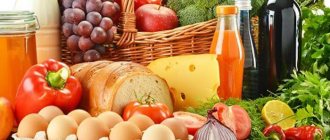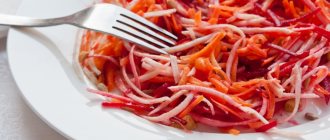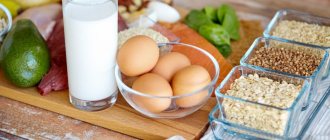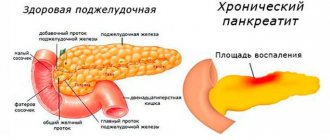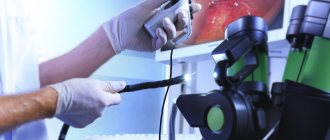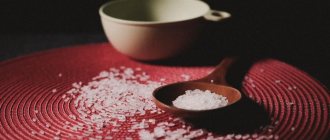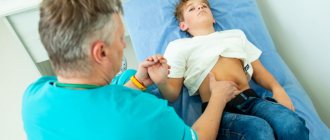The article was prepared by a specialist for informational purposes only. We urge you not to self-medicate. When the first symptoms appear, consult a doctor.
Food poisoning happens very often. In this case, the digestive system is primarily affected. To cope with the problem, you need to pay special attention to nutrition. When intoxication is removed from the body, and the main symptoms of poisoning are stopped, you need to think about the person’s diet. Its competent preparation is of the same importance as medicinal correction.
In case of poisoning, the walls of the stomach and intestines are damaged, so a person develops gastritis and diarrhea. The pancreas and liver are under attack. To restore the normal functioning of these organs, you need to eat right.
The World Health Organization strongly recommends against giving up food altogether. With food poisoning, this can only harm the body. Prolonged fasting only increases damage to inflamed mucous membranes.
General nutritional recommendations for poisoning
To unload the digestive system, you need to follow a diet. The patient is advised to consume soft foods.
Since food poisoning often manifests itself with vomiting and diarrhea, the diet should be formulated according to the following rules:
- The menu must be selected in such a way as to prevent the development of dehydration and help eliminate inflammation.
- The diet should help restore electrolyte balance.
- The diet should promote the regeneration of the mucous membranes of the stomach and intestines.
The menu needs to be structured so that it enriches the body with vitamins, microelements and nutrients.
Basic principles of nutrition for food poisoning:
- Daily intake of protein – 80 g, carbohydrates – 200 g, fat – 85 g.
- You need to eat every 2-2.5 hours. The average serving weight is 100 g.
- You need to drink about 2.5 liters of water per day. This will remove harmful substances from the body and prevent the development of dehydration. In addition to plain water, you can drink alkaline mineral water, but without gas, as well as medicinal decoctions and infusions. Every 30 minutes, at least 80 mg of liquid should enter the body. This will prevent dehydration and provoke vomiting.
- Food must be steamed and then pureed or mashed.
- In the process of eating food, you cannot rush, each piece must be chewed thoroughly, without being distracted by external stimuli: the phone, books, TV.
- The food is heated to a temperature of 18-55 °C.
- There should not be a lot of salt in the diet, as it irritates the digestive system.
- It is forbidden to drink alcoholic beverages, as they burden the liver and kidneys. Alcohol can cause serious disruption in their functioning.
- You need to stick to a gentle menu for up to 21 days, but not less than 18 days. It all depends on the severity of the poisoning. You can switch to your usual diet plan gradually, introducing only 1 dish every day.
Content:
- Why should nutrition be special when recovering from binge drinking?
- Why do you want to eat after a binge?
- What to eat after binge drinking - diet features
- Fluid is the key to a speedy recovery
- Foods that reduce cravings for alcohol
- What not to eat
- Indicative menu for a speedy recovery
- How to make a diet correctly
You can improve your well-being after long periods of drinking and alcoholism by using medications and undergoing physical procedures. Diet also plays a huge role during the detoxification period. If the patient knows what to eat, he will recover much faster.
Narcologists say that the diet after binge drinking should be as gentle as possible. The patient is allowed to eat only healthy and easily digestible foods. Almost all harmful and familiar goodies are prohibited. This is very important for recovery.
What can you eat if you are poisoned?
Immediately after poisoning, the human body is very weak. Therefore, the menu should not contain large amounts of carbohydrates and fats. The digestive system simply does not have enough strength to absorb them.
You should not eat fruits, as they provoke fermentation in the intestines. Particular attention should be paid to the protein component. During poisoning, the body loses a lot of proteins, so care must be taken to replenish them. If the diet is compiled correctly, then a person will not feel the urge to vomit. It can only come down to mild nausea.
There is no need to exclude carbohydrates from the menu. Their source can be dried fruit compotes. Complex carbohydrates are necessary for the production of glycogen in the liver. This is necessary to remove intoxication from the body. Vitamins that a person especially needs after food poisoning: vitamin A, tocopherol, vitamin C, B vitamins.
Authorized Products
Allowed products after poisoning:
- Low-fat meats: rabbit, poultry. Steam cutlets or meatballs are prepared from it. Meat is also allowed to be boiled.
- Low-fat broths based on poultry meat.
- Low-fat fish varieties.
- Slimy soups based on oatmeal, rice, buckwheat.
- Cottage cheese and milk with low fat content.
- Steamed omelettes or soft-boiled eggs.
- Butter is allowed, but it is eaten in small portions.
- Fruit jelly, jelly, compotes and mousses.
- Rusks and crackers.
- Fruit juices that need to be diluted with water. You can drink weak tea with lemon, dill water, or rosehip decoction.
Fluid is the key to a speedy recovery
Due to drinking, the body improperly redistributes fluid reserves. A subjectively dependent person can understand this by his swollen face and severe headaches. In such a situation, the volume of circulating blood decreases, which is unacceptable.
This is why narcologists tell all patients to drink a lot. If dehydration is severe, IVs are given. The liquid normalizes the amount of circulating blood and activates the activity of volume and osmoreceptors. As a result, urination becomes more frequent, swelling goes away, headaches are minimized, blood pressure drops, and the load on the heart is reduced.
If a large amount of liquid taken causes a gag reflex in the drinker (this often happens with severe intoxication), it is useful for him to drink often and little by little. If this measure turns out to be useless, you should go to a drug treatment hospital as soon as possible for an IV drip.
What should you not eat if you are poisoned?
Food poisoning requires avoiding many foods. However, you should not despair, since such a restrictive measure is temporary.
It is important to remove from the menu foods that contribute to increased bile production. This will relieve the digestive organs from the irritating effects of hydrochloric acid and enzymes.
Fatty, spicy, salty foods, foods containing acids and essential oils are prohibited. You should not include foods that are a source of coarse fiber in your menu. They load the digestive organs, enhance fermentation processes in the intestines, and make abdominal pain more intense.
Prohibited Products
In case of food poisoning, the following foods are prohibited:
- Spicy, fried, hot, pickled, fatty dishes. This also includes smoked meats and fast food.
- Fresh fruits, sour berries, citrus fruits, nuts.
- Legumes, cabbage, mushrooms, radishes, onions, cucumbers.
- Baked goods, fresh pastries, chocolate, cakes, pasta.
- Fatty broths, complex soups.
- Fatty meat and fatty fish.
- Sausage, canned food, sauces, semi-finished products.
- Barley, millet, corn.
- Strong coffee and tea.
- Sparkling water.
How to buy and choose products correctly
If a child develops food poisoning, you need to pay special attention to your food purchasing choices. Below we have compiled recommendations for you that will help you purchase safe and healthy food for your baby.
- Buy products only from certified outlets. Avoid spontaneous markets and kiosks. It is best to buy them in large supermarkets or official markets.
- Feel free to ask for invoices and product inspection results. Sellers are required to present these documents to buyers.
- Check the expiration date of products. Expired goods can lead to re-poisoning. Please note that you need to look at the factory production date. In stores, they sometimes paste it with a newer date.
- Pay attention to the appearance of the product. For example, bananas with damaged skins can be dangerous.
- Smell the meat when purchasing. Fresh, chemical-free meat does not smell of anything. But meat parts that are not fresh are treated in stores with formaldehyde or chlorine. A child's weakened body may react negatively to such stale meat treated with chemicals and may become poisoned again.
- Do not purchase frozen foods (meat, fish, vegetables). You have no way of knowing how many times they have been defrosted and re-frozen. Such food can be hazardous to health.
- Do not buy ready-made meals for your child in stores or restaurants. You can be confident in the quality and safety of food only if you select and prepare the products yourself.
Sample food menu
The patient should eat as varied as possible. Eating the same foods every day is unacceptable. After food poisoning, both children and adults can rely on the menu presented in the table.
- Breakfast. Sweet tea, oatmeal with vegetable oil and sugar.
- Lunch. Banana and compote with dried fruits.
- Afternoon snack. Dried white bread, a small piece of boiled chicken, still alkaline mineral water.
- Dinner. Chicken broth with toasted white bread.
- Snack. Biscuits and green tea.
- Dinner. Stewed vegetables and compote.
Literature:
- Mental illnesses: clinic, treatment, prevention: [Ref. a manual for neurologists, psychotherapists and doctors of other specialties] / Tyuvina N. A. - M.: Publishing house. house "KRON-press", 1997. - 250 p.
- Guide to addictionology / Axelrod B. A. et al.; edited by V. D. Mendelevich. - St. Petersburg: Rech, 2007. - 766 p.
- Gastroenterology: reference book / Baranovsky A.Yu. and etc.; Peter, 2011. - 506 p.
The text was checked by medical experts: Head of the socio-psychological service of the Alkoklinik MC, psychiatrist-narcologist L.A. Serova.
CAN'T FIND THE ANSWER?
Consult a specialist
Or call: +7 (495) 798-30-80
Call! We work around the clock!
Weekly schedule
- In the first 7 days after the poisoning occurs, you can drink low-fat boiled milk, as well as kefir and yogurt without additives. Consume dairy products in small portions so as not to overload the stomach and provoke vomiting.
- In the second week, you can eat cabbage, soups with vegetables and legumes. The menu is also complemented with slimy porridges with honey and milk.
- From the third week, fried foods and baked goods begin to be gradually introduced into the diet. Spices can be added to soups. At the same time, the table is expanded with sweets.
- Starting from the fourth week, you can return to your usual menu. Provided that the poisoning was severe and the person was in the hospital, you need to refrain from returning to your usual dishes for another week.
Foods that reduce cravings for alcohol
There are products that reduce cravings for alcohol. The list can include fast carbohydrates, the sources of which are sweets. Cakes, chocolate, baked goods - such goodies reduce the desire to get hungover, as they increase the production of endorphin (the hormone of happiness). But it is clear that they are harmful to health and in case of severe alcohol intoxication, eating them is extremely undesirable.
There is an alternative to the usual sweets - soy products, all cereals, strawberries, blueberries, quail eggs, fish, bananas, tomatoes, oranges, peppers. They all also reduce the desire to drink alcohol. And after a binge, you can eat all these foods absolutely calmly, without fear of undesirable consequences.
By giving preference to complex carbohydrates, the drinker will feel much better. They should become the basis of his diet along with proteins. What’s important is that foods rich in complex carbohydrates prevent spikes in blood glucose. This effect is very important in terms of preventing alcoholism (fluctuations in glucose contribute to the desire to get drunk).
What harm does binge drinking cause to the body?
In order to create the correct recovery diet, you need to clearly understand what damage was caused to the body during intoxication. During alcohol binge, the following organs and systems are most often affected:
- Gastrointestinal tract. Immediately after binge drinking, patients experience gastritis and pancreatitis, and the liver is most often exhausted and cannot fully perform its functions.
- The cardiovascular system. Hypertension and tachycardia are the most typical consequences of heavy drinking. Vasospasms and cardiac arrhythmia are somewhat less common.
- Kidneys. Mostly, after binge drinking, patients experience nephropathy of varying severity.
- Nervous system. Most often, patients experience mild encephalopathy, manifested by a decrease in intellectual abilities (memory, attention, thinking), noise in the head and/or dizziness, as well as depressive moods.
Based on this clinical picture, a list of foods and dishes that are allowed and prohibited for consumption immediately after a binge should be formed.

